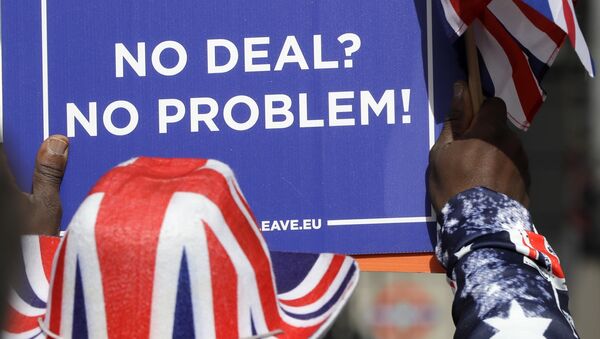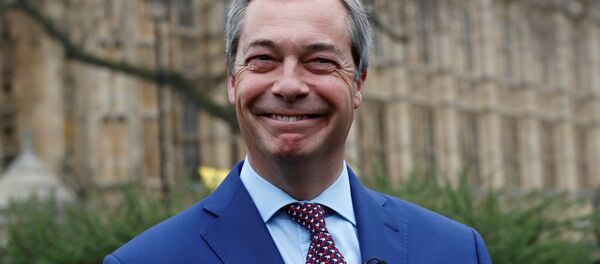"I think the upcoming elections will show the complete collapse of the Conservative party's vote caused by their denial of Brexit and their complete ignorance of their own voters, who have been saying they've wanted a clean Brexit … So Conservative voters are moving away en masse, particularly in the south, but also it was clear that the Labour party lost seats and didn't gain ground where the Conservatives were failing, and then in the north of England they too suffered because of their unclear view on Brexit. So there's a new approach by the Brexit party and we'll be seeing that after the next election," Woolfe said.
READ MORE: Nigel Farage's Brexit Party Would Hammer Tories in General Election — New Poll
The independent member of the European Parliament went on to claim that the recent local elections, in which the Conservatives lost over 1,300 seats, were clear evidence that voters were abandoning the government, although the Labour party was also winning few friends over their allegedly "unclear" position on Brexit.
"The level of disillusionment and anger towards the mainstream political parties is much bigger than they believe … From my knocking on doors and talking to constituents the rise of the Brexit party is a direct correlation to their disillusionment with the mainstream parties for ignoring Brexit, and this is occurring on both the left and the right," Woolfe underlined.
Speaking to Sputnik, the union leader claimed there was now a "very deep, worrying disillusionment with all parties in the UK parliament and their failure to implement the referendum result," something that would likely impact significantly on the Conservative party in the upcoming elections to the European Parliament.
The elections to the European Parliament will be held on May 23-26. A YouGov survey released earlier in the day indicated that the Brexit Party continues to lead in voting intention polls, securing support of 34 percent of Britons. The poll also revealed that the UK opposition Labour Party was expected to receive 16 percent of the vote, while the Conservative Party only came fifth with 10 percent of support.
READ MORE: Senior Labour Officials Throw Support Behind 'Confirmatory' Brexit Referendum
The United Kingdom was initially supposed to leave the European Union on March 29. The parties have agreed on the withdrawal deal, but UK lawmakers have refused to pass it with the arrangement to avoid a hard border on the island of Ireland being one of the main points of concern for the parliamentarians.
The Brexit deadline was subsequently moved to October 31 with London obliged to participate in the European Parliament elections if the deal is not passed by May 23.



